Synthetic Biology FSP

February 2018

Happy New Year! I hope you all had a relaxing break over the holidays and have come back refreshed and ready to leap into another year of awesome SynBio science.
In this issue we welcome some new members to our SynBio FSP team. Congratulations to our newly-awarded PhD Top-Up Scholars, who were announced just before the break! We welcome you and your advisors to the SynBio FSP family. We are also very pleased to announce our new International Advisory Panel and new Application Domain Leaders.
We provide answers to some of the commonly asked questions about acknowledging the FSP in publications and for communicating FSP-funded research. Please take a moment to read through that section.
There are a number of great events and opportunities coming up that we’d love to get you involved in. Most importantly, please put a placeholder in your calendars for this year's SynBio FSP Workshop:
Date: 29-30 November, 2018
Location: CSIRO's North Ryde site, Sydney
We are seeking expressions of interest to join Launch Camp—part of CSIRO’s successful ON Program. While this is a program designed to help you understand the market for your research ideas, it is not just for marketable ideas - it also helps to frame and develop pathways to research impact more generally. So, if you’re into translational research and other broader impacts, then this one could be for you.
We are also looking for state representatives to help us build on our local communities and networks, and for those of us looking to get their awesome research out into the public domain, CSIRO is calling for presenters for the Pint of Science festival in May this year.
As always, if you have any great ideas for how the SynBio FSP can help support our members and/or the broader SynBio community, please let us know, and remember to forward any news, opportunities or events you have coming up for the next newsletter.
All the best,
Claudia
Assoc. Professor Claudia Vickers
Synthetic Biology Future Science Platform Leader
CSIRO
A big welcome to our new SynBio FSP International Advisory Panel! The panel represents a range of expertise from across the synthetic biology discipline, including policy, industry engagement, social science and wet lab. Each member is an internationally-recognised expert, with expertise in one or more of the FSP’s Application Domains. The panel members have extensive professional networks within the international synthetic biology community and their advice and guidance will be invaluable. We are very grateful to these exceptional individuals for providing their time to support the SynBio FSP.
Introducing the members:
Professor Paul Freemont - Imperial College London, UK
Professor John Glass - J. Craig Venter Institute, USA
Professor Fred Gould - North Carolina State University, USA
Dr Sarah Hartley - University of Exeter, UK
Professor Jim Haseloff - University of Cambridge, UK
Professor Birger Lindberg Møller - University of Copenhagen, Denmark
Assoc. Professor Kristala Prather - MIT, USA
Professor Pamela Silver - Harvard University, USA
Assoc. Professor Matthew Wook Chang - National University of Singapore
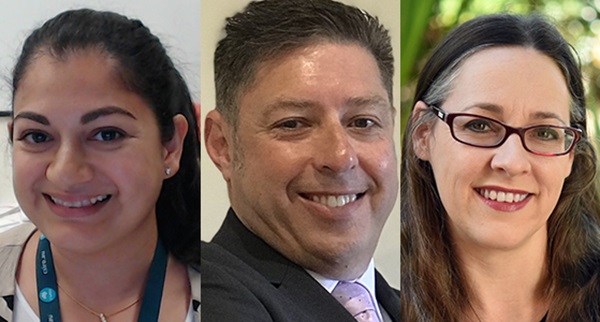
We’re very pleased to welcome Aditi Mankad as Domain Leader for the Maximising Impact Application Domain and Andrew Bean as Domain Leader for the new Health Application Domain. Claudia Vickers will take on the Domain Leader role for the Foundation Technologies Application Domain. We are targeting increased research activity in Health and Maximising Impact Application Domains as part of the current call for CSIRO Synthetic Biology Future Science Fellowships, though continue to accept applications across all of the Application Domains.
We have a diverse research team working under the umbrella of the SynBio FSP, with people hosted at a range of different research institutions and centres. This can raise issues of consistency when it comes to communicating and publishing our research and quite a few of you have contacted us with queries on this topic. We’ve put together some guidelines to follow, which are detailed in full in the FSP’s Guide for staff and affiliates available on our team Confluence site.
Publishing FSP-funded and affiliated work
When preparing your manuscript for publication you should include an affiliation to the FSP for FSP-funded projects, or for anyone whose salary is covered by FSP funding, by adding this affiliation to the title page of your manuscript:
‘CSIRO Synthetic Biology Future Science Platform’
This is in addition to any other affiliation you may have.
To acknowledge funding received from the FSP you should also add the following to the Acknowledgements section:
‘This work was funded through the CSIRO Synthetic Biology Future Science Platform.’
or
‘This work was funded in part through the CSIRO Synthetic Biology Future Science Platform.’
In addition, CSIRO requires that CSIRO-affiliated publications go through our ePublish system before submission to a journal. The ePublish portal can be found through the MyCSIRO intranet. Please note that you will need to be a CSIRO affiliate with an active CSIRO ident and password to have access to this system (if you don’t yet have this please talk to your CSIRO mentor about setting this up).
Once inside the ePublish system, there are a couple of key steps. You will be asked to select an approver for your manuscript: please select the appropriate Application Domain Leader. If the Domain Leader is a co-author, then please select the FSP Leader, Claudia Vickers.
You will also be asked to select a Program to affiliate the manuscript with: please select the Synthetic Biology FSP (in the Land & Water Business Unit).
For FSP Fellows: if your CSIRO mentor is not a co-author, you should also include them as an advisor in your submission. This alerts them to the submission so they can advise if required. If you have any issues with ePublish please contact your FSP Application Domain Leader or CSIRO mentor for advice.
Communications and media protocols
The following is a summary of some of the main points from the FSP’s communications protocols and approval processes, which you can find in full in the Guide for staff and affiliates. The Communication Advisor for the FSP is Chris McKay (chris.mckay@csiro.au), who is the first point of contact for any communications queries.
All public communications about FSP projects (e.g. media interviews, web pages, blogs, but not including academic presentations) should have the approval of the FSP Leader and CSIRO's communications team. To ensure this can happen in a timely manner, please consider our involvement when planning any communication activities as early as you can – we recommend 4 weeks, where possible. This allows the team to provide input and advice early, explain the communications options and ensure they align with the FSP’s broader communications strategy. For example, CSIRO has a range of branded templates for presentations, posters, brochures and fact sheets that should be used.
It’s important to remember that CSIRO, as a government research agency, has a public comment policy that must be adhered to. This excerpt from the policy outlines some of your responsibilities:
‘As representatives of CSIRO, staff should avoid making direct comment for or against government or opposition policy. In this respect, CSIRO policy may differ from some Australian universities; CSIRO differs in that it is a Commonwealth Government agency. This gives CSIRO the advantage that it can participate directly in the internal policy development processes of government.’
Visit MyCSIRO to view the full Public Comment Policy [CSIRO login details required].
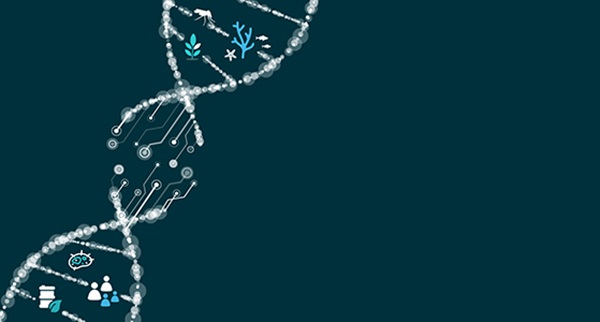
Applications are now open, until 5 March 2018, for the second round of our Synthetic Biology Future Science Fellowships. The Future Science Fellowships scheme aims to attract outstanding national and international early- to mid-career postdoctoral researchers (equivalent to Australian Academic Levels A and B, or in exceptional circumstances, Level C) to expand Australian research capacity in synthetic biology. Fellowships will be hosted at a Host Organisation (usually an Australian University, but other Australian research organisations may also be eligible) and will be a partnership between the Fellow, CSIRO, and the Host Organisation.
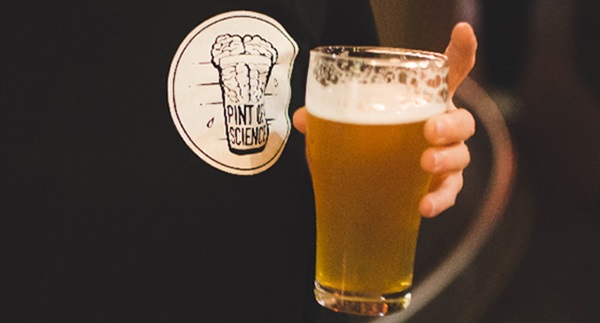
CSIRO is calling for science communicators to participate in this year’s Pint of Science, an international science festival that started in Australia a few years ago. Happening 14-16 May, it’s a fun opportunity to engage with a captive audience of bright-eyed and interested punters (the next generation of STEM leaders?) and give back to your community, while building up your own networks. We would love to see some SynBio FSP researchers in the mix. If you are interested please contact Chris McKay (chris.mckay@csiro.au).

We are currently seeking expressions of interest to attend the ON Program Launch Camp. Launch camp is a 2-day experience designed to help you take the first steps towards understanding the market for your research idea. The Launch Camp will develop your skills to facilitate customer discovery, discover how lean innovation can be used to chart pathways to impact, and introduce teams to tools and mindset to start the process of "proof of problem". The SynBio FSP will support registration costs for Launch Camp, but places will be limited. Dates and locations are still to be confirmed for 2018. If you are interested please contact Lisa Devereaux (lisa.devereaux@csiro.au).
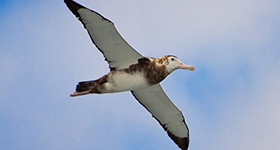 " After="" />
" After="" />
Owain Edwards, Peter Brown, Mark Tizard, Tanja Strive and Andy Sheppard on the promise of gene technologies for conservation purposes and the need to proceed responsibly.
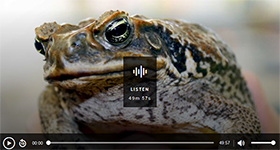 " After="" />
" After="" />
Andy Sheppard was on ABC's Nightlife radio program to discuss invasive species in Australia and how new technologies like gene drive could offer management solutions in the future.
 " After="" />
" After="" />
Mark Tizard was interviewed as part of a BBC radio show on genetic technologies and animal foods, talking about the promise of gene editing in pre-hatch sex determination of chickens.
11-12 Apr: Molecular Microbiology Meeting, Sydney
3-7 Jun: Synthetic Biology, Engineering, Evolution & Design (SEED) 2018, Arizona
1-3 Oct: SynBioBeta 2018 - The Global Synthetic Biology Summit, San Francisco
25-28 Oct: iGEM 2018 Giant Jamboree, Boston
26-28 Nov: 7th International Yeast 2.0 and Synthetic Genomes Conference, Sydney